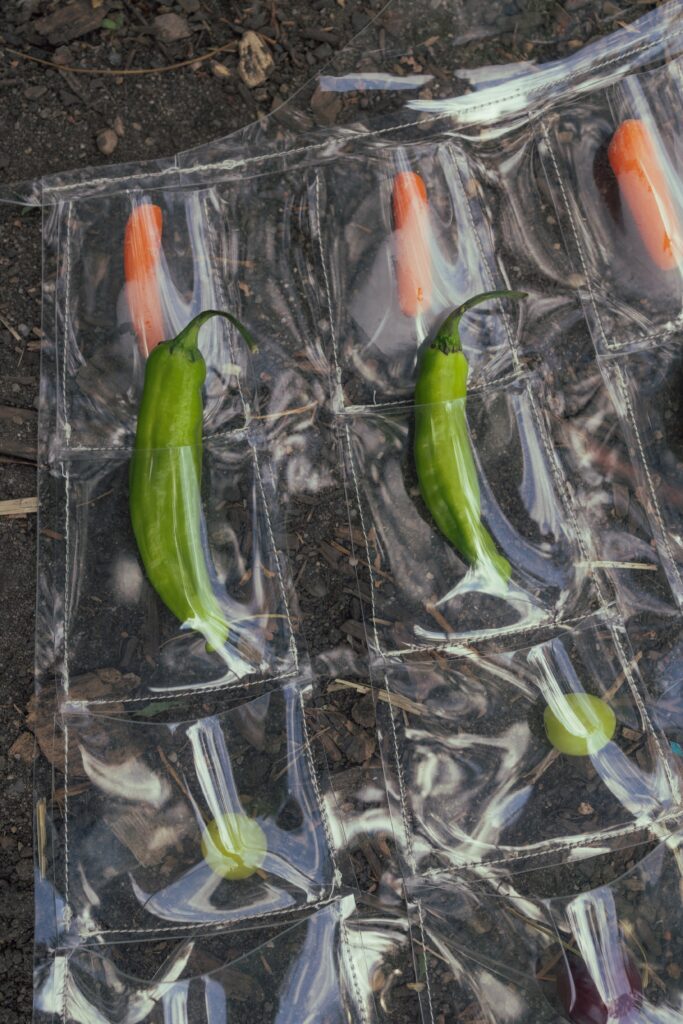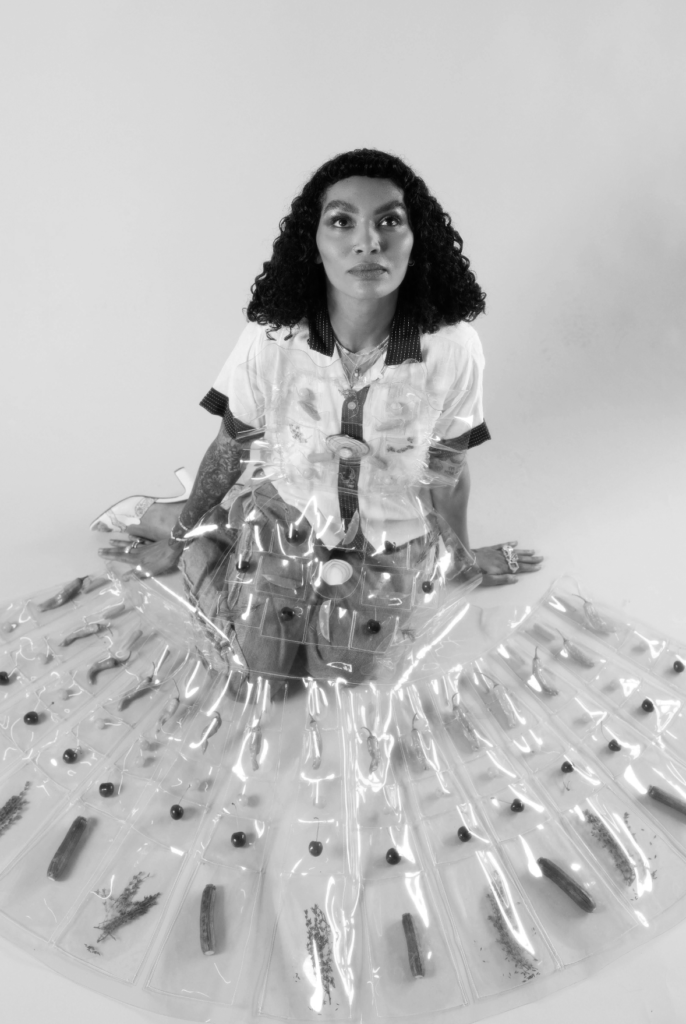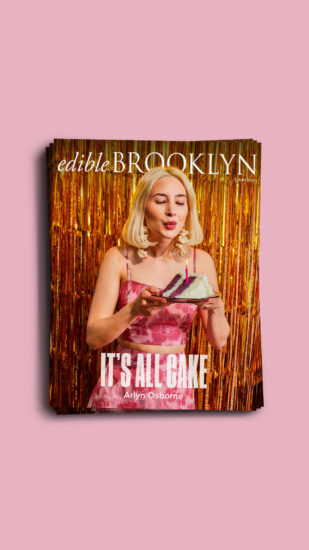Ask Sho Konishi if imagining a plastic apron full of decomposing food was an unlikely project for a person more used to whipping up stage costumes for Saweetie and Lizzo, and the considered designer will tell you this: “Food and clothes are not so far removed. When I cook, I really think about the ingredients; the same as if I’m making a dress. I love the idea of fashion having a purpose, and cooking for others is a kind of performance, too.”

While the results may be wildly different, it’s easy to see what he means. Using ingredients that he’d foraged from Sophia Roe’s Instagram account as inspiration for a design befitting the James Beard Award–winning chef, writer, and Emmy Award–nominated TV host, his creation sweeps against the ground and features quirky transparent ruffles and a dizzying array of pockets overflowing with decomposing food—red onions, wildflowers, and green peppers. The design holds all the wonder and fantasy of the metal-laden armor that is fast becoming his signature.
Konishi, who was born in a countryside region of Japan he recalls as being “80% forest,” attributes his aesthetic to two polar opposites: a combination of “nature and an abstract idea of the future.” The latter stems from his burgeoning side interest in artificial intelligence. Somewhere, somehow, the artful creator, who is now based in New York, finds time in his schedule to “create robotic stuff.” He explains, “For me, A.I. is an evolution of human beings, “so it’s an extension of organic matter, in a way.”

But there’s an ironic juxtaposition between Konishi’s bucolic upbringing and his draw towards a career in fashion—the world’s second-most-toxic polluter. “I don’t want to be a part of that side of the industry,” he firmly asserts. In an intentional attempt to be informed and not add to the current crisis, Konishi studied sustainability and biology at Parsons in Paris and employs that education as often as he can. “Sometimes we don’t respect the fibers that go into our clothes, or the workers creating them, but being respectful is so important. I want to do that through my work and pass that same mind-set on to the next generation.”
RELATED: Sophia Roe: At Work and Play
Originally featured in our Winter 2022 Issue



